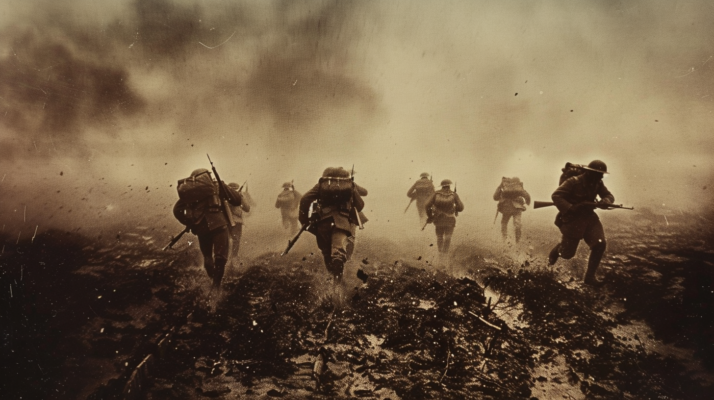Fleming Begaye Sr., a Navajo code talker who aided the Allies in achieving victory in the Pacific Theater during World War II, passed away on May 10, 2019, at the age of 97. He was among the last surviving members of an elite group of Navajo (Diné in Navajo) individuals who utilized their language to transmit top-secret military information during the war.
Born in 1921 in Red Valley, Arizona, Begaye attended a Native American boarding school, which was part of a U.S. policy that compelled Native American children into institutions focusing on English-only education. Despite these efforts, the Navajo language became a crucial aspect of Begaye’s life. When World War II began, Begaye’s daughter told The New York Times, he learned that the Marines were seeking individuals who could speak Navajo.
He responded to the call and etched his name in history. During World War I, Choctaw code talkers demonstrated that Native American languages, which had few speakers due to U.S. policies enforcing assimilation and displacing Native Americans from their ancestral lands, could serve as an unbreakable code.
In World War II, the Marines employed this strategy again, enlisting Navajo speakers and others to relay messages on the battlefield. The Navajo language, being unwritten and complex, proved to be an efficient method for conveying critical information swiftly.
Begaye was one of approximately 420 Navajo men who served as code talkers, deployed to the Pacific Theater. There, he participated in the Battle of Tarawa, a 76-hour confrontation to capture a Japanese-held island, resulting in over 3,000 U.S. casualties. During the 1943 battle, a Japanese bomb destroyed the landing craft that was transporting Begaye to shore. He survived by swimming to safety.
The following year, Begaye narrowly escaped death again when he was shot while landing on Tinian in the Mariana Islands, home to a Japanese fortress that Allied forces later converted into an Air Force base. He spent nearly a year in the hospital recovering from his injuries.
After the war, Begaye returned to the Navajo Nation in Arizona, where he farmed and established a trading post known as Begaye’s Corner. It took decades for the Navajo code talkers’ contributions to be publicly acknowledged after the program was declassified in 1968. In 2017, Begaye and other surviving code talkers were honored by President Donald Trump in a contentious event where the president mocked Senator Elizabeth Warren.
“Code Talker Begaye was a warrior, a family man, and a businessman,” said Navajo Nation president Jonathan Nez in a statement regarding Begaye’s passing. “In every aspect of his life, he was a loving person who cared greatly for his people.” Today, fewer than 11 code talkers are believed to still be alive.





